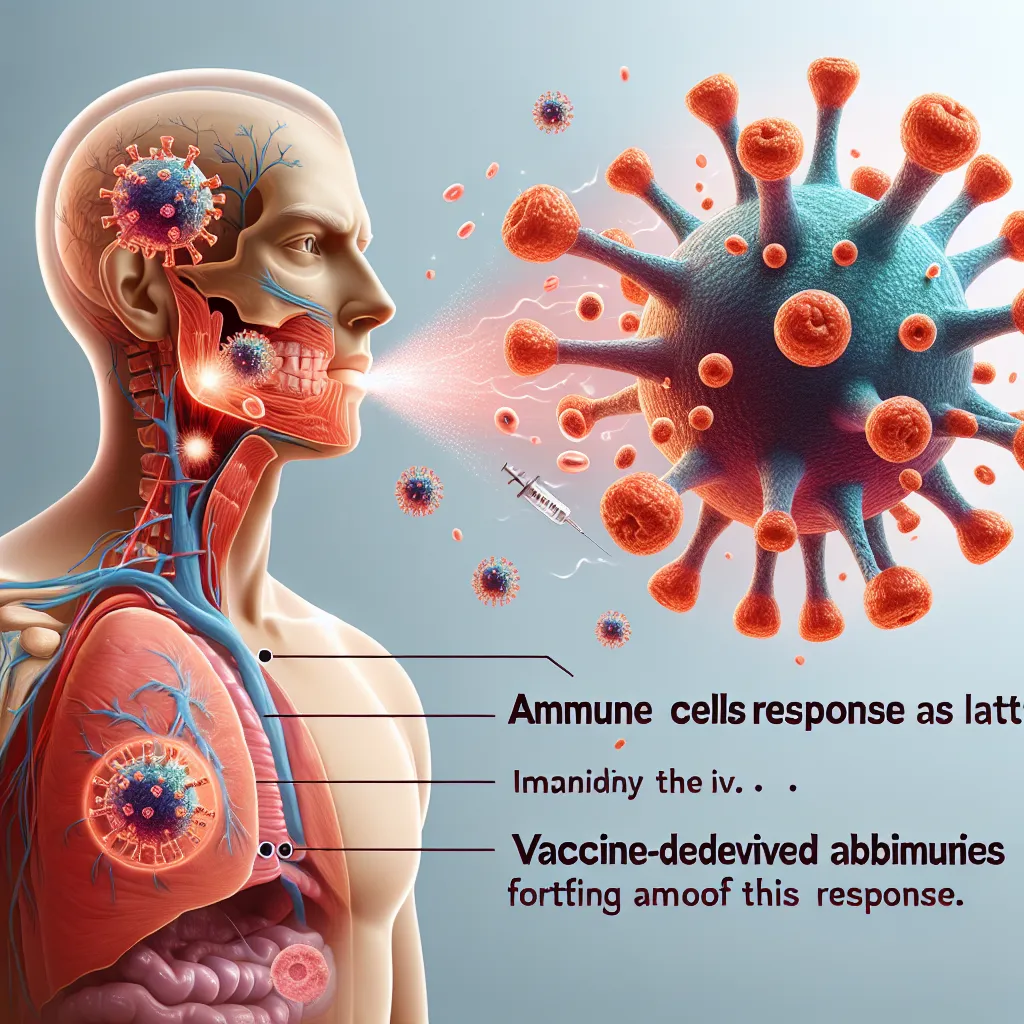Lately, there’s been a lot of buzz about measles. So, what exactly is measles, and should you get vaccinated? Or is it just media hype?
Measles is a virus made up of proteins and RNA. It can’t reproduce on its own and needs a host cell to do so. To understand how measles works, we need a bit of insight into the immune system.
The virus gets into the body through the nose, mouth, or eyes and starts in the lungs. It targets macrophages, which are cells that defend the lungs. The virus takes over these cells, turning them into virus-making machines. Once enough new viruses are made, they burst out and repeat this process.
Our immune system has natural killer cells that patrol the body, hunting for infected cells. They make the infected cells self-destruct. This works well initially, so you might not even feel sick for the first ten days.
Then, the immune system’s dendritic cells, kind of like the brain’s messengers, step in. They grab samples of the virus and go to the lymph nodes to call for reinforcements. But here’s the tricky part: the measles virus infects these dendritic cells, using them to spread deeper into the body. When these cells reach the lymph nodes, the virus exposes fresh T and B cells to itself, spreading even further.
Things get bad quickly. The virus spreads through the bloodstream, hitting vital organs like the spleen, liver, intestines, and primarily, the lungs. Symptoms include a high fever, headache, bronchitis, and the infamous rash. The immune system in the lungs initially holds up okay, but a second wave of virus attacks crushes it. You start coughing out millions of viruses, making measles extremely contagious—about 90% of unvaccinated people who have contact with you will get infected.
Without the lungs’ defense, other infections can easily take root, potentially turning into pneumonia, a common cause of death from measles. By now, the immune system is heavily damaged, and the virus spreads across the skin, showing the rash. In some severe cases, the virus reaches the brain, leading to a brain infection with a high mortality rate and risk of lasting damage.
Your body fights back fiercely, though. Surviving dendritic cells activate body-wide defenses. Plasma cells pump out antibodies, and killer T cells hunt down infected cells. Usually, after two to three weeks, the body takes control and beats the infection. However, your immune system is left weak and vulnerable for weeks or months, prone to other diseases.
Surviving measles gives you lifetime immunity. Yet, the disease is no joke. Despite vaccination efforts, it still claimed 122,000 lives in 2014. Vaccination is crucial not just for those who can take it but also for protecting those who can’t—infants, people undergoing chemotherapy, or those with specific allergies.
The measles vaccine is safe, cost-effective, and widely available. There’s no advantage in getting measles—it doesn’t strengthen your immune system, and it’s not a natural alternative. Most anti-vaxxers aim to protect their kids, which is commendable. But it’s important to ask: by not vaccinating, am I risking my child’s life and others’? Unfortunately, the answer is yes.
Let’s not point fingers. Instead, let’s join forces and eliminate this terrible virus. Working together, we can make measles a thing of the past.






